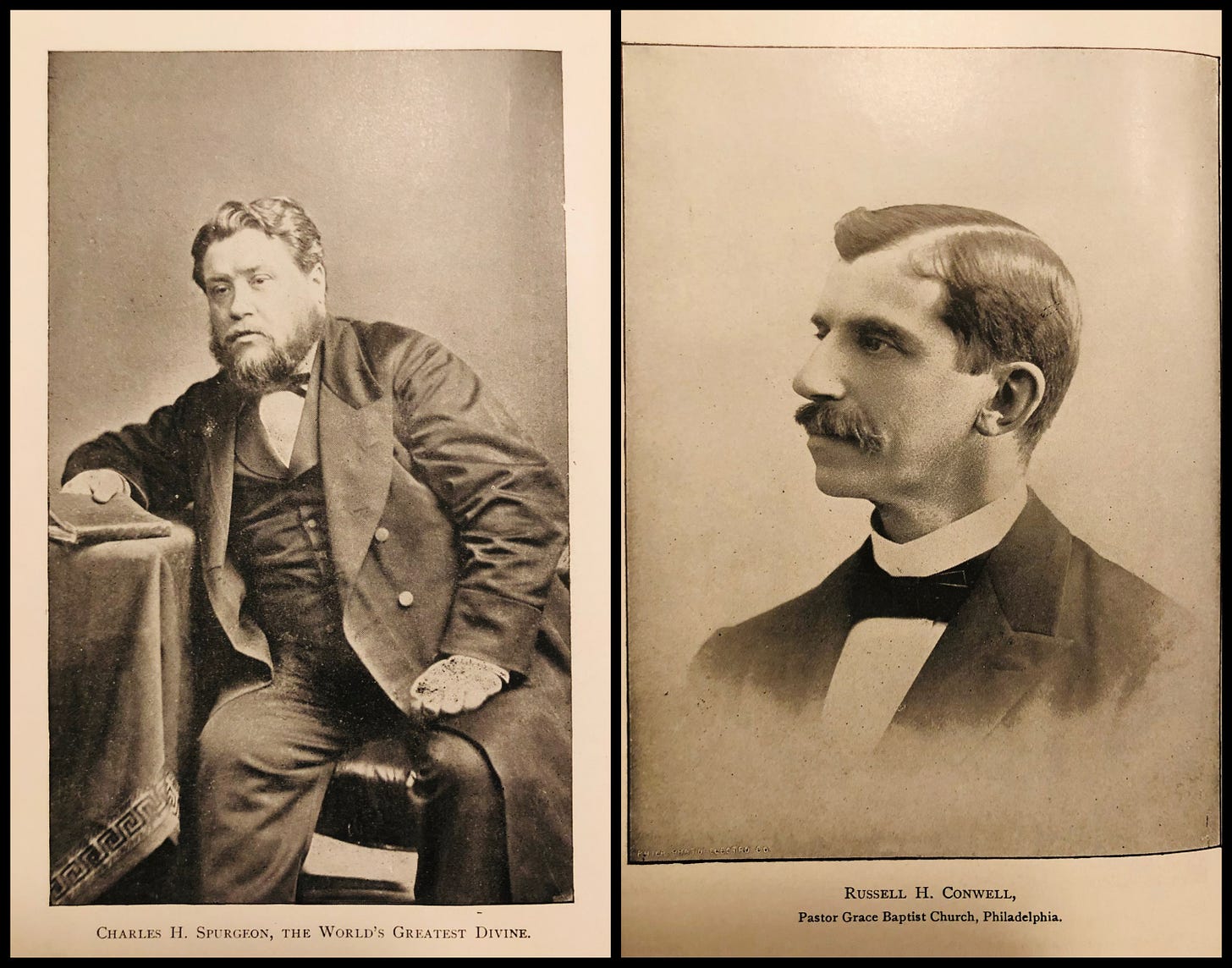Dig in your own backyard.
That is, essentially, the message encased in the most famous essay by Baptist minister and Temple University founder Russell Herman Conwell. The essay was named “Acres of Diamonds” and it became so famous during the preacher’s lifetime (1843-1925) that he traveled all over the world delivering it, 6,152 times legend has it.
I began this post thinking that I’d write about Charles Spurgeon, another famous preacher, the “world’s greatest” according to Conwell. The book in my collection from 1892 by Conwell is called “Charles Spurgeon: The World’s Greatest Divine.”
But I don’t know, Dig in Your Own Backyard seems more interesting. Plus, Conwell is sort of local (Massachusetts anyway) so in desperately trying to maintain a local flavor to these posts, we’ll stick with him rather than his book about that other guy.
Here’s the gist of the sermon: a poor man was so determined to find diamonds that he sold all his belongings and his home to go find them. The new owner, however, discovered a rich diamond mine right there on the property. The moral? The first guy never even thought to dig in his own backyard.
There are two ways to read this. The first is an allegory. One need not look elsewhere for wealth and opportunity for true wealth and contentment can be found with family, friends and your own small patch of neighborhood. Good works and a good life can be had right where you are.
The second reading, which appears to be Conwell’s point, is that you have nobody to blame but yourself if you don’t achieve success. There’s a line in the essay, in fact, where Conwell writes “Let us remember there is not a poor person in the United States who was not made poor by his own shortcomings.”
Ooof.
Historian Howard Zinn takes Conwell to task about this, laying some of the blame for the country’s anybody can get rich if only they try hard enough attitude.
Anyway, where am I going with all of this? I prefer the first reading, of course. In part because I’m always “digging” around in my own backyard – whether literally my back yard or the back yard of my conscience/soul, etc. to uncover some truths about the world.
But also, because it just FEELS like the world we find ourselves in lately has a whole lot more to do with finding contentment in small miracles than pulling up your bootstraps.
Maybe old preacher Spurgeon has something to say about this after all. There’s a line in one of his sermons where he refers to the potential vicious circle of being poor and desperate.
Spurgeon writes, “Hungry dogs will eat dirty puddings; and people who are hard up very often do dirty actions.” He concludes that just because you’re moving down the ladder instead of up, you shouldn’t sacrifice your character.
Hmmm. Perhaps I should have written about Spurgeon instead. Maybe next time. Either way, find your own backyard, give it a dig, see what you find.





Well, as someone who has been preaching 45-50 sermons a year for forty-one years, he's flipped that particular scripture on its head anyway since it is originally that when one finds a treasure unexpectedly one should sell everything and buy that field, but also that it was a callous way to treat poverty even in those days. Pass me some Dickens, please.
Once again, you've given us a lot to consider. I like your first choice, too. And you have done just that, with all your investigations of NH and the area with Tough Cookie and now with Little Bean - or on your own. And you've obviously read a wide range of material! Thank you for giving us ideas of consider and maybe follow, and a look at writings we may not have even known about.